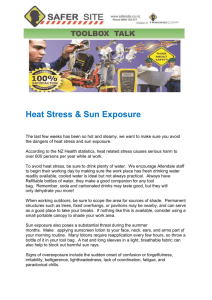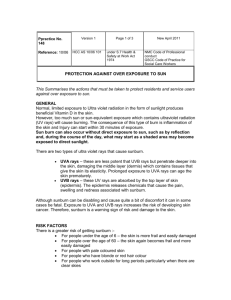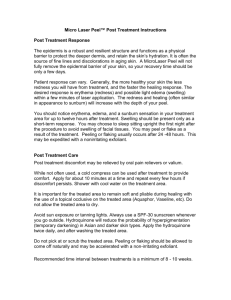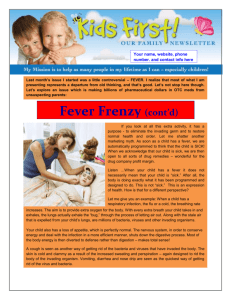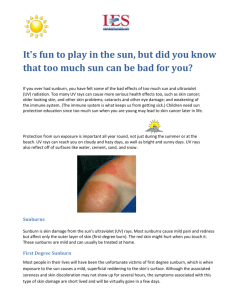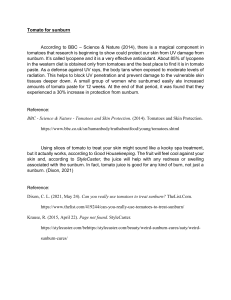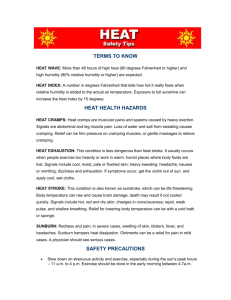INSTRUCTION SHEET: SUNBURN University of North Carolina Wilmington Abrons Student Health Center
advertisement
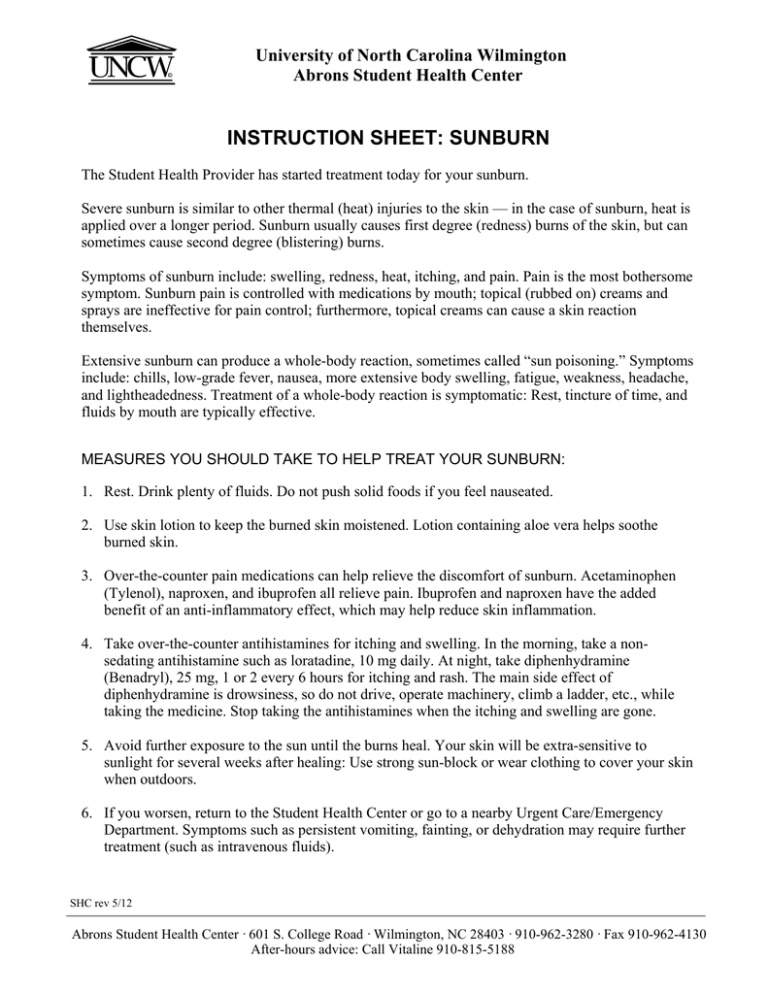
University of North Carolina Wilmington Abrons Student Health Center INSTRUCTION SHEET: SUNBURN The Student Health Provider has started treatment today for your sunburn. Severe sunburn is similar to other thermal (heat) injuries to the skin — in the case of sunburn, heat is applied over a longer period. Sunburn usually causes first degree (redness) burns of the skin, but can sometimes cause second degree (blistering) burns. Symptoms of sunburn include: swelling, redness, heat, itching, and pain. Pain is the most bothersome symptom. Sunburn pain is controlled with medications by mouth; topical (rubbed on) creams and sprays are ineffective for pain control; furthermore, topical creams can cause a skin reaction themselves. Extensive sunburn can produce a whole-body reaction, sometimes called “sun poisoning.” Symptoms include: chills, low-grade fever, nausea, more extensive body swelling, fatigue, weakness, headache, and lightheadedness. Treatment of a whole-body reaction is symptomatic: Rest, tincture of time, and fluids by mouth are typically effective. MEASURES YOU SHOULD TAKE TO HELP TREAT YOUR SUNBURN: 1. Rest. Drink plenty of fluids. Do not push solid foods if you feel nauseated. 2. Use skin lotion to keep the burned skin moistened. Lotion containing aloe vera helps soothe burned skin. 3. Over-the-counter pain medications can help relieve the discomfort of sunburn. Acetaminophen (Tylenol), naproxen, and ibuprofen all relieve pain. Ibuprofen and naproxen have the added benefit of an anti-inflammatory effect, which may help reduce skin inflammation. 4. Take over-the-counter antihistamines for itching and swelling. In the morning, take a nonsedating antihistamine such as loratadine, 10 mg daily. At night, take diphenhydramine (Benadryl), 25 mg, 1 or 2 every 6 hours for itching and rash. The main side effect of diphenhydramine is drowsiness, so do not drive, operate machinery, climb a ladder, etc., while taking the medicine. Stop taking the antihistamines when the itching and swelling are gone. 5. Avoid further exposure to the sun until the burns heal. Your skin will be extra-sensitive to sunlight for several weeks after healing: Use strong sun-block or wear clothing to cover your skin when outdoors. 6. If you worsen, return to the Student Health Center or go to a nearby Urgent Care/Emergency Department. Symptoms such as persistent vomiting, fainting, or dehydration may require further treatment (such as intravenous fluids). SHC rev 5/12 Abrons Student Health Center · 601 S. College Road · Wilmington, NC 28403 · 910-962-3280 · Fax 910-962-4130 After-hours advice: Call Vitaline 910-815-5188
